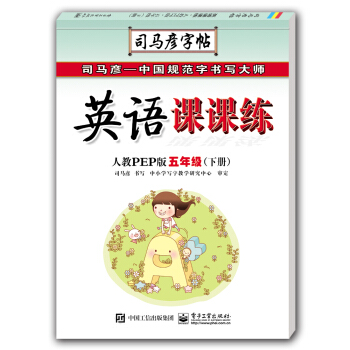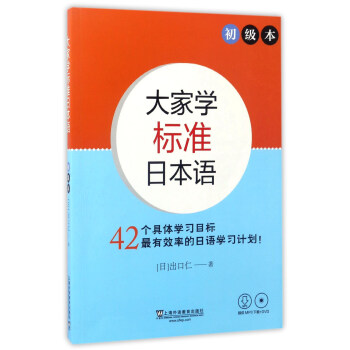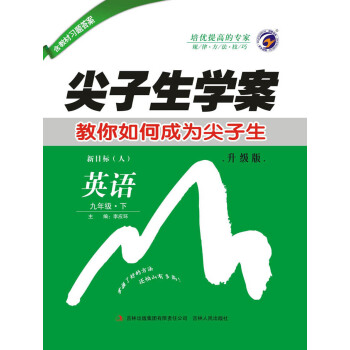![政府论(全英文原版) [The Second Treatise of Government]](https://pic.windowsfront.com/12192041/59c12061N48f6ef91.jpg)

具体描述
产品特色
内容简介
《政府论》是英国约翰·洛克(John Locke)于1690年出版的政治著作,其汇集了洛克的主要政治哲学思想,不仅使洛克成为古典自由主义思想的集大成者,而且对于后世的现实政治产生了深远的影响。该书分为上下两篇,上篇集中驳斥了当时占统治地位的君权神授说和王位世袭论,下篇系统地阐述了公民政府的真正起源、范围、目的。全书出色完成了为英国资产阶级革命辩护的任务,对英国政治、经济的发展起到了巨大的推动作用。《政府论》被誉为“近代资产阶级革命的《圣经》”,至今仍被学者们视为可同亚里士多德的《政治学》相媲美的政治学经典著作。
古人有云:朝闻道,夕死可矣。人是社会动物,都有窥探社会组织架构、了解社会组织形态的好奇心和冲动。而现代社会更多脱胎于始于欧洲的资产阶级革命,要想做这方面的探究,和伟人直接对话是一条捷径。这就是这套原版的社科经典丛书的编辑初衷。不管你是学哲学的学生,还是从事社会科学研究的学者,不读几部经典原著,不在书架上摆上一套经典原著,应该是人生的一大憾事。
作者简介
约翰 洛克,英国哲学家。他主张宗教宽容,开创了经验主义,是第1个全面阐述宪政民主思想以及提倡人的“自然权利”的哲学家,其政治理念深远地影响了美国、法国、英国以及其他的西方国家。
目录
The Preface 001
CHAPTER 1 004
CHAPTER 2 Of the State of Nature 006
CHAPTER 3 Of the State of Wa 015
CHAPTER 4 Of Slavery 020
CHAPTER 5 Of Property 022
CHAPTER 6 Of Paternal Powe 039
CHAPTER 7 Of Political or Civil Society 056
CHAPTER 8 Of the Beginning of Political Societies 069
CHAPTER 9 Of the Ends of Political Society and Government 088
CHAPTER 10 Of the Forms of a Commonwealth 092
CHAPTER 11 Of the Extent of the Legislative Power 094
CHAPTER 12 Of the Legislative, Executive, and Federative Power of the Commonwealth 103
CHAPTER 13 Of the Subordination of the Powers of the Commonwealth 106
CHAPTER 14 Of Prerogative 115
CHAPTER 15 Of Paternal, Political, and Despotical Power, Considered Togethe 122
CHAPTER 16 Of Conquest 126
CHAPTER 17.Of Usurpation 140
CHAPTER 18 Of Tyranny 142
CHAPTER 19 Of the Dissolution of Government 150
精彩书摘
SECOND TREATISE OF GOVERNMENT:
AN ESSAY CONCERNING THE TRUE ORIGINAL,
EXTENT AND END OF CIVIL GOVERNMENT
BY JOHN LOCKE
The Preface
Reader, thou hast here the beginning and end of a discourse concerning government; what fate has otherwise disposed of the papers that should have filled up the middle, and were more than all the rest, it is not worth while to tell thee. These, which remain, I hope are sufficient to establish the throne of our great restorer, our present King William; to make good his title, in the consent of the people, which being the only one of all lawful governments, he has more fully and clearly, than any prince in Christendom; and to justify to the world the people of England, whose love of their just and natural rights, with their resolution to preserve them, saved the nation when it was on the very brink of slavery and ruin. If these papers have that evidence, I flatter myself is to be found in them, there will be no great miss of those which are lost, and my reader may be satisfied without them: for I imagine, I shall have neither the time, nor inclination to repeat my pains, and fill up the wanting part of my answer, by tracing Sir Robert again, through all the windings and obscurities, which are to be met with in the several branches of his wonderful system. The king, and body of the nation, have since so thoroughly confuted his Hypothesis, that I suppose no body hereafter will have either the confidence to appear against our common safety, and be again an advocate for slavery; or the weakness to be deceived with contradictions dressed up in a popular stile, and well-turned periods: for if any one will be at the pains, himself, in those parts, which are here untouched, to strip Sir Robert's discourses of the flourish of doubtful expressions, and endeavour to reduce his words to direct, positive, intelligible propositions, and then compare them one with another, he will quickly be satisfied, there was never so much glib nonsense put together in well-sounding English. If he think it not worth while to examine his works all thro', let him make an experiment in that part, where he treats of usurpation; and let him try, whether he can, with all his skill, make Sir Robert intelligible, and consistent with himself, or common sense. I should not speak so plainly of a gentleman, long since past answering, had not the pulpit, of late years, publicly owned his doctrine, and made it the current divinity of the times. It is necessary those men, who taking on them to be teachers, have so dangerously misled others, should be openly shewed of what authority this their Patriarch is, whom they have so blindly followed, that so they may either retract what upon so ill grounds they have vented, and cannot be maintained; or else justify those principles which they preached up for gospel; though they had no better an author than an English courtier: for I should not have writ against Sir Robert, or taken the pains to shew his mistakes, inconsistencies, and want of (what he so much boasts of, and pretends wholly to build on) scripture-proofs, were there not men amongst us, who, by crying up his books, and espousing his doctrine, save me from the reproach of writing against a dead adversary. They have been so zealous in this point, that, if I have done him any wrong, I cannot hope they should spare me. I wish, where they have done the truth and the public wrong, they would be as ready to redress it, and allow its just weight to this reflection, viz. that there cannot be done a greater mischief to prince and people, than the propagating wrong notions concerning government; that so at last all times might not have reason to complain of the Drum Ecclesiastic. If any one, concerned really for truth, undertake the confutation of my Hypothesis, I promise him either to recant my mistake, upon fair conviction; or to answer his difficulties. But he must remember two things.
First, That cavilling here and there, at some expression, or little incident of my discourse, is not an answer to my book.
Secondly, That I shall not take railing for arguments, nor think either of these worth my notice, though I shall always look on myself as bound to give satisfaction to any one, who shall appear to be conscientiously scrupulous in the point, and shall shew any just grounds for his scruples.
I have nothing more, but to advertise the reader, that Observations stands for Observations on Hobbs, Milton, &c.; and that a bare quotation of pages always means pages of his Patriarcha, Edition 1680.
CHAPTER I
Sect. 1. It having been shewn in the foregoing discourse,That Adam had not, either by natural right of fatherhood, or by positive donation from God, any such authority over his children, or dominion over the world, as is pretended:
That if he had, his heirs, yet, had no right to it:
That if his heirs had, there being no law of nature nor positive law of God that determines which is the right heir in all cases that may arise, the right of succession, and consequently of bearing rule, could not have been certainly determined:
That if even that had been determined, yet the knowledge of which is the eldest line of Adam's posterity, being so long since utterly lost, that in the races of mankind and families of the world, there remains not to one above another, the least pretence to be the eldest house, and to have the right of inheritance:
All these premises having, as I think, been clearly made out, it is impossible that the rulers now on earth should make any benefit, or derive any the least shadow of authority from that, which is held to be the fountain of all power, Adam's private dominion and paternal jurisdiction; so that he that will not give just occasion to think that all government in the world is the product only of force and violence, and that men live together by no other rules but that of beasts, where the strongest carries it, and so lay a foundation for perpetual disorder and mischief, tumult, sedition and rebellion, (things that the followers of that hypothesis so loudly cry out against) must of necessity find out another rise of government, another original of political power, and another way of designing and knowing the persons that have it, than what Sir Robert Filmer hath taught us.
Sect. 2. To this purpose, I think it may not be amiss, to set down what I take to be political power; that the power of a MAGISTRATE over a subject may be distinguished from that of a FATHER over his children, a MASTER over his servant, a HUSBAND over his wife, and a LORD over his slave. All which distinct powers happening sometimes together in the same man, if he be considered under these different relations, it may help us to distinguish these powers one from wealth, a father of a family, and a captain of a galley.
Sect. 3. POLITICAL POWER, then, I take to be a RIGHT of making laws with penalties of death, and consequently all less penalties, for the regulating and preserving of property, and of employing the force of the community, in the execution of such laws, and in the defence of the commonwealth from foreign injury; and all this only for the public good.
用户评价
在阅读过程中,我尝试去理解作者所处的时代背景,一个君主专制与新兴资产阶级力量激烈碰撞的时代。这种历史的张力,极大地影响了这部作品的结构和倾向性。作者在构建其理论体系时,显然是带着强烈的目的性,那就是为新兴的政治诉求提供一个坚不可摧的哲学盾牌。然而,令人称奇的是,他的论证并未因此显得片面或带有强烈的党派色彩,反而形成了一种超越时空限制的普适性。例如,他对“立法权”与“执行权”的分立原则的强调,虽然在后世的实践中被不断地修正和完善,但在其提出的那一刻,无疑是划时代的远见。这种对权力制衡的早期构想,显示了作者卓越的政治智慧。阅读时,我仿佛能听到那个时代知识分子对暴政的不满和对更美好社会形态的迫切向往,这种历史的回响,使得这部著作的阅读体验远超一般理论书籍的枯燥感。
评分这部作品的叙事节奏把握得非常巧妙,它不是一步到位的宣告,而是一个层层递进的、引人入胜的推理过程。从最基本的个体存在出发,通过对“同意”的反复界定,逐步推导出国家形成的必要性,直至最后论证公民在何种情况下有权废除现有政府,整个过程如同一部精心设计的逻辑迷宫,引导读者按图索骥,最终抵达对“有限政府”的必然结论。这种由内而外、由微观到宏观的建构方式,体现了那个时代启蒙思想家们对清晰、有序的理性世界的追求。阅读时,我常常需要停下来,细细咀嚼那些关于“默示同意”或“多数人统治”的微妙之处,因为正是这些细微的定义,决定了整个理论大厦的稳固与否。总的来说,它是一部需要读者投入心力去跟进作者思路的经典,但回报是丰厚的——它提供了一套独立思考政治合法性的强大工具。
评分这本书的语言风格,与其说是一种严肃的哲学论述,不如说更像是一篇经过精心打磨的、针对当时政治体制的“檄文”。行文之中,那种克制而又暗流涌动的激情,是其引人入胜的关键。作者在描述自然人如何一步步迈向政治共同体的过程中,所采用的修辞技巧极为高超,他不断地通过对比“自由”与“奴役”、“理性选择”与“专制强加”来强化读者的情感倾向。我发现,即便跳出历史背景,仅仅将其视为一部关于“权力限制”的教科书,它依然价值连城。它教导我们,真正的自由并非为所欲为,而是在一个明确且被同意的法律框架内行事,而这个框架的制定权,最终必须回归到个体手中。对我个人而言,最受启发的是他对政府职能的严格限定——政府的唯一目的就是保护个人的自然权利,一旦它偏离这个核心使命,那么它自身的存在合法性便开始瓦解。这种对公权力的不信任感,是这部作品最宝贵的遗产之一。
评分初读此书,最大的感受是其文本的穿透力和时代感。尽管这部作品诞生于数个世纪之前,但其中探讨的诸多议题,比如政府的职能边界、公民抵抗的权利,乃至自由与秩序之间的永恒张力,至今仍是各国政治辩论的核心议题。作者的论证方式极其狡黠而有力,他似乎总能绕过那些陈旧的、基于神授君权的辩护,直接切入到个体生命的体验和对暴政的恐惧之中。那种对“公权力滥用”的警惕,几乎是渗透在每一页的字里行间,读来令人不寒而栗,又深感共鸣。这绝非一本空泛的学院派理论,它带着鲜明的实践色彩和对现实政治的深刻洞察。我特别欣赏作者在阐述社会契约论时的那种近乎直觉的清晰感,他没有陷入繁复的形而上学纠缠,而是用一种近乎常识的语言,构建起了一个人民授权的逻辑链条。这种直截了当,使得其思想更容易被不同文化背景的读者所接受和理解,即便在今天,它依然是衡量一场革命或改革是否具有正当性的重要参照系。
评分这部著作的问世,无疑为政治哲学领域投下了一枚重磅炸弹,它以一种近乎颠覆性的姿态,挑战了自古以来关于权力合法性与人民主权的核心命题。阅读过程中,我时常感到一种思想上的强烈冲击,作者对于自然状态的细致描摹,以及由此推导出的个体权利的不可剥夺性,构建了一个逻辑严密、令人信服的理论框架。特别是他对财产权起源的论述,巧妙地将劳动与所有权直接挂钩,这不仅仅是一个经济学的观点,更深层次上,它为现代自由主义奠定了坚实的哲学基石。我注意到作者在论证过程中展现出的那种古典的理性主义光辉,他似乎相信人类的心智能够通过纯粹的逻辑推理,抵达普遍且永恒的政治真理。这种对理性至上的推崇,在后世看来或许略显理想化,但在那个特定的历史语境下,却是一种振聋发聩的呼喊,要求所有统治者都必须接受理性的审视与检验。这部作品的魅力,就在于它提供了一套完整的、自洽的体系,用以衡量和批判现存的统治权威,促使每一个手握权力的人,都必须正视其权力的根源是否扎根于被统治者的真实同意。
评分不错 正在看
评分标题有漏印,英语单词的排版有错,好像是盗版
评分不错 正在看
评分好
评分111111111111111111111111111
评分好
评分111111111111111111111111111
评分好
评分不错 正在看
相关图书
本站所有内容均为互联网搜索引擎提供的公开搜索信息,本站不存储任何数据与内容,任何内容与数据均与本站无关,如有需要请联系相关搜索引擎包括但不限于百度,google,bing,sogou 等
© 2026 book.coffeedeals.club All Rights Reserved. 静流书站 版权所有










![丽声唱学自然拼读 第一级至第四级套装(套装共8册 点读版 附CD光盘4张) [4-9岁] pdf epub mobi 电子书 下载](https://pic.windowsfront.com/12193969/59cdf4edN8815940d.jpg)









